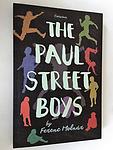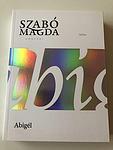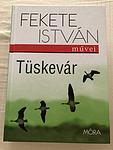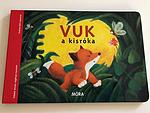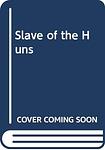The Greatest Hungarian "Fiction" Books Since 1900
Click to learn how this list is calculated.
This list represents a comprehensive and trusted collection of the greatest books. Developed through a specialized algorithm, it brings together 284 'best of' book lists to form a definitive guide to the world's most acclaimed books. For those interested in how these books are chosen, additional details can be found on the rankings page.
Genres
Countries
Date Range
Reading Statistics
Click the button below to see how many of these books you've read!
Download
If you're interested in downloading this list as a CSV file for use in a spreadsheet application, you can easily do so by clicking the button below. Please note that to ensure a manageable file size and faster download, the CSV will include details for only the first 500 books.
Download-
1. Fateless by Imre Kertész
"Fateless" is a harrowing account of a Hungarian Jewish boy's experiences in Nazi concentration camps during World War II. The protagonist is sent to Auschwitz, then Buchenwald, and finally to a factory in Zeitz, enduring brutal conditions and witnessing unimaginable horrors. Despite his experiences, he maintains a detached, almost indifferent perspective, focusing on the mundane aspects of life in the camps, which further highlights the absurdity and horror of the situation. The novel explores themes of identity, survival, and the arbitrary nature of fate.
-
2. Embers by Sandor Marai
"Embers" is a novel about two old friends who reunite after being apart for 41 years. The story takes place in a secluded castle in the Carpathian Mountains, where the two men confront each other about a long-kept secret that has kept them apart. The narrative delves into themes of friendship, love, loyalty, and betrayal, while exploring the intricate dynamics of human relationships. The novel is a poignant examination of the nature of time and memory, and the ways in which they can shape and define our lives.
-
3. The Notebook: The Proof ; The Third Lie : Three Novels by Agota Kristof
"The Notebook: The Proof ; The Third Lie : Three Novels" is a trilogy of novels that follow the lives of twin brothers, living through the harsh realities of war, separation, and betrayal. The first novel, "The Notebook," tells the story of their survival as children in a rural town at the end of World War II. The second book, "The Proof," continues their story into adulthood, exploring the effects of their traumatic childhood. The final book, "The Third Lie," delves into the complexities of their relationship and the secrets they kept from one another. The trilogy is a poignant exploration of identity, love, and the enduring bond of brotherhood.
-
4. Journey by Moonlight by Antal Szerb
"Journey by Moonlight" tells the story of a newlywed Hungarian couple, Mihály and Erzsi, who honeymoon in Italy. Mihály, however, is haunted by his past and becomes increasingly obsessed with his adolescent years, his old friends, and a mysterious brother and sister. This results in him abandoning Erzsi in order to embark on a strange and dark journey of self-discovery. The novel explores themes of nostalgia, love, and the struggle between personal desires and societal expectations.
-
5. Édes Anna by Dezső Kosztolányi
"Édes Anna" is a novel that revolves around the life of a young servant girl, Anna, who works for a bourgeois family in early 20th century Hungary. The narrative explores Anna's experiences of exploitation, abuse, and societal oppression. As she navigates her way through life, her innocence and naivety are gradually eroded, leading her to commit an act of violent rebellion. The book is a potent critique of class and gender inequalities of the time.
-
6. Celestial Harmonies by Peter Esterhazy
"Celestial Harmonies" is a historical novel that tells the story of the aristocratic Esterházy family, tracing their lineage from the late Middle Ages to the present day. The narrative is divided into two parts, with the first part featuring a series of vignettes about the family's ancestors, while the second part focuses on the experiences of the narrator's father under the Communist regime in Hungary. The novel is characterized by its intricate structure, complex themes, and lush, poetic language, offering a rich exploration of Hungarian history, family dynamics, and the human condition.
-
7. The Case Worker by György Konrád
"The Case Worker" is a novel that follows the life of a young, disillusioned social worker in Hungary who is struggling with the grim realities of his job. He is constantly faced with the harsh and desperate situations of his clients, which include the poor, the mentally ill, and the elderly. As he tries to help them, he becomes increasingly aware of the bureaucratic and social systems that often hinder rather than aid these vulnerable individuals. This leads him to question the effectiveness of his role and the larger societal structures in place.
-
8. The Door by Szabó, Magda
"The Door" by Magda Szabo is a novel about the relationship between two women, one of whom is a writer and the other is her housekeeper. The story explores themes of class, power, and the complexities of human relationships. As the two women become increasingly intertwined, their relationship becomes more and more complicated, leading to unexpected consequences for both of them. The novel is a powerful exploration of the human condition, and a poignant reminder of the importance of understanding and empathy in our interactions with others.
-
9. Epepe by Ferenc Karinthy
The book revolves around a linguist who finds himself inexplicably trapped in a nightmarish city where he cannot understand the language or communicate with the inhabitants. Despite his expertise in languages, the protagonist's skills are rendered useless in this alien environment, leading to a series of Kafkaesque encounters as he desperately tries to make sense of his surroundings and find a way back home. His isolation is compounded by the city's indifferent bureaucracy and the strange, often absurd, customs of its citizens, turning his ordeal into an existential struggle for identity and understanding in the face of an incomprehensible world.
-
10. The Melancholy of Resistance by László Krasznahorkai
"The Melancholy of Resistance" is a surreal and philosophical novel set in a small Hungarian town that becomes isolated by a massive snowstorm. The arrival of a mysterious circus, featuring a stuffed whale and a silent, enigmatic leader, brings with it a wave of change and unrest. The narrative explores themes of chaos, resistance, and the struggle for power through the perspectives of various townsfolk, including a reclusive music theorist and a former political dissident. The novel is known for its complex, long-winded sentences and its bleak yet profound examination of human nature and society.
-
11. The Paul Street Boys by Ferenc Molnár
The book is a classic coming-of-age tale set in Budapest, Hungary, at the turn of the 20th century. It follows a group of adolescent boys who are engaged in a territorial battle over a vacant lot they call the "grund," which they use as their playground. The story highlights themes of loyalty, camaraderie, and the struggles of youth as the boys defend their cherished space against a rival group. The narrative focuses on the experiences of the protagonist, who is faced with difficult moral choices and the harsh realities of growing up, as the boys' conflict mirrors the larger social and economic tensions of their time.
-
12. Abigél by Szabó, Magda
Set against the backdrop of World War II in Hungary, the novel follows a young girl sent to a strict boarding school in the countryside by her father, a high-ranking general who fears for her safety amidst the war. Struggling to fit in and feeling abandoned, she eventually discovers the school harbors deep secrets, including the mysterious "Abigél," a statue that seems to be at the center of a clandestine operation protecting those persecuted by the war. As the protagonist navigates the complexities of adolescence, authority, and the harsh realities of her time, she learns valuable lessons about trust, loyalty, and the power of community in the face of adversity.
-
13. Tüskevár by István Fekete
The novel is a coming-of-age story that follows two city boys who spend their summer in the Hungarian countryside, near a place called Tüskevár, to learn about nature, survival, and self-reliance. Under the guidance of an old woodsman, they encounter various adventures and challenges, from learning to fish and hunt to dealing with the harsh realities of the natural world. Throughout their stay, they gain a deep appreciation for the environment and experience personal growth, ultimately leaving behind their naïve views and becoming more mature and responsible individuals.
-
14. Abel Alone by Áron Tamási
"Abel Alone" is a poignant narrative that follows the life of a young shepherd named Abel, who lives in the isolated, pastoral landscapes of Transylvania. The story delves into Abel's solitary existence, his deep connection with nature, and his struggles with the complexities of human relationships and societal expectations. As he grapples with personal growth and the challenges of adulthood, Abel's journey is a testament to the resilience of the human spirit and the search for identity and belonging in a world that often feels vast and indifferent.
-
15. Indul A Bakterház by Sándor Rideg
"Indul A Bakterház" is a Hungarian novel that follows the life of a young boy growing up in a rural village during the interwar period. The narrative centers around the boy's experiences in a strict, yet comical, educational system and his interactions with a cast of eccentric characters, including his family members and schoolmates. Through a series of humorous and poignant episodes, the novel paints a vivid picture of village life, exploring themes of adolescence, tradition, and the universal journey of growing up amidst the challenges of poverty and societal change.
-
16. Be Faithful Unto Death by Zsigmond Móricz
The novel is a poignant coming-of-age story set in a Hungarian boarding school at the turn of the 20th century. It follows the life of a young boy from a poor family who earns a scholarship to attend the prestigious institution. His journey is marked by the struggle to fit in among wealthier peers, the harsh discipline of school authorities, and the challenges of adolescence. When a valuable violin goes missing, he is unjustly accused of theft, leading to a profound examination of morality, integrity, and the resilience of the human spirit in the face of injustice and hardship.
-
17. Vuk: The Little Fox by István Fekete
The book is a captivating tale of a young fox named Vuk who, after the tragic loss of his family, embarks on a journey of survival and discovery in the wild. Under the guidance of his wise uncle Karak, Vuk learns the ways of the forest, hones his hunting skills, and navigates the perils of the natural world. As he grows, he encounters various challenges and adventures, including confrontations with hunters and other animals. The story is a poignant exploration of the circle of life, the importance of family and mentorship, and the coming-of-age of a clever and resilient protagonist.
-
18. A Funtineli Boszorkány by Albert Wass
The novel is a sweeping historical saga set in Transylvania, focusing on the life of a young peasant girl who, despite her humble origins and the tumultuous times, rises to become a powerful figure in her community. Possessing an indomitable spirit and a mysterious gift that some consider witchcraft, she navigates the complex social hierarchies and political upheavals of her era, becoming both revered and feared. Her journey is marked by love, loss, and the relentless pursuit of her destiny, as she becomes entwined with the fates of the villagers and the land itself, reflecting the broader struggles and resilience of the human spirit.
-
19. They Were Counted by Miklos Banffy
This novel, set in the twilight years of the Austro-Hungarian Empire, weaves a tale of aristocratic decadence, political intrigue, and personal downfall. It follows two cousins, navigating the treacherous waters of high society, politics, and love in Transylvania and Budapest. Through their eyes, the reader experiences the lavish balls, the rural estates, and the corridors of power, all set against the backdrop of an empire on the brink of collapse. The story masterfully portrays the complex interplay between personal ambitions, romantic entanglements, and the shifting sands of political alliances, capturing the essence of a bygone era with vivid detail and emotional depth.
-
20. Kincskereső Kisködmön by Ferenc Móra
"Kincskereső Kisködmön" is a classic Hungarian children's tale that follows the adventures of a young, clever boy from a poor family who sets out on a quest to find a hidden treasure. Along his journey, he encounters various characters and obstacles, using his wit and resourcefulness to solve riddles and overcome challenges. The story is a celebration of ingenuity and perseverance, as the protagonist demonstrates that with courage and cleverness, even someone from humble beginnings can achieve great things. The book is not only a treasure hunt but also a moral tale that imparts valuable lessons to its young readers.
-
21. Give Me Back My Mountains by Albert Wass
"Give Me Back My Mountains" is a poignant historical novel that delves into the struggles and resilience of a Transylvanian noble family during the tumultuous period of World War II and the subsequent communist takeover. The narrative explores themes of loss, identity, and the unyielding human spirit, as the family confronts the confiscation of their ancestral lands and the erosion of their cultural heritage. Through vivid characters and rich descriptions, the book paints a picture of a bygone era, highlighting the personal and collective challenges faced by those who lived through the seismic political shifts of the 20th century in Eastern Europe.
-
22. Árvácska by Zsigmond Móricz
The book is a poignant tale of a young orphan girl navigating the hardships of life in early 20th-century Hungary. Thrust into a world of poverty and struggle, she is passed from one exploitative guardian to another, each more neglectful and abusive than the last. Despite the relentless adversity and the loss of her innocence, the protagonist's resilience and spirit shine through as she endures the cruelties of her existence, searching for a place to call home and a family to love her. The narrative serves as a powerful social commentary on the plight of the vulnerable in a society indifferent to their suffering.
-
23. Dirty Fred The Captain by Jenő Rejtő
The book is a humorous adventure set in the 1930s, following the misadventures of Dirty Fred, a lovably roguish sea captain, and his sidekick, a former Foreign Legionnaire. Together, they navigate through a series of comical escapades involving treasure hunts, mistaken identities, and run-ins with a colorful cast of characters, including criminals, spies, and femme fatales. The story is known for its witty dialogue, satirical take on classic adventure tropes, and the endearing camaraderie between the two main characters as they try to outsmart their adversaries and survive the perils of their swashbuckling lifestyle.
-
24. Slave Of The Huns by Géza Gárdonyi
"Slave of the Huns" is a historical novel that transports readers to the tumultuous era of Attila the Hun's reign, seen through the eyes of a Greek captive. The protagonist, a young man of noble birth, is taken as a slave and must navigate the perilous world of the Hunnic Empire, where brutality and barbarism reign supreme. His journey is one of survival, resilience, and adaptation as he witnesses the fearsome power of the Huns, experiences the complexities of their society, and encounters love amidst the chaos of war. The novel blends adventure, romance, and a richly detailed historical backdrop to explore themes of freedom, cultural clash, and the indomitable human spirit.
-
25. A Nap Szerelmese by Sándor Dallos
"A Nap Szerelmese" is a historical novel that delves into the life and times of a Hungarian solar physicist. Set against the backdrop of the tumultuous first half of the 20th century, the book follows the protagonist's passionate pursuit of scientific discovery, his love for the sun, and his personal struggles amidst the political upheavals of the era. As he navigates the challenges of his research and the complexities of his private life, the narrative weaves a rich tapestry of intellectual fervor, emotional depth, and the relentless quest for knowledge in an ever-changing world.
Reading Statistics
Click the button below to see how many of these books you've read!
Download
If you're interested in downloading this list as a CSV file for use in a spreadsheet application, you can easily do so by clicking the button below. Please note that to ensure a manageable file size and faster download, the CSV will include details for only the first 500 books.
Download









